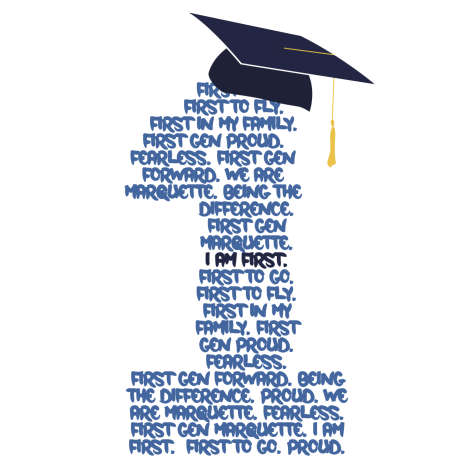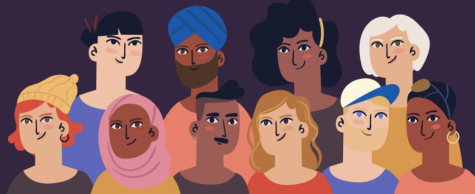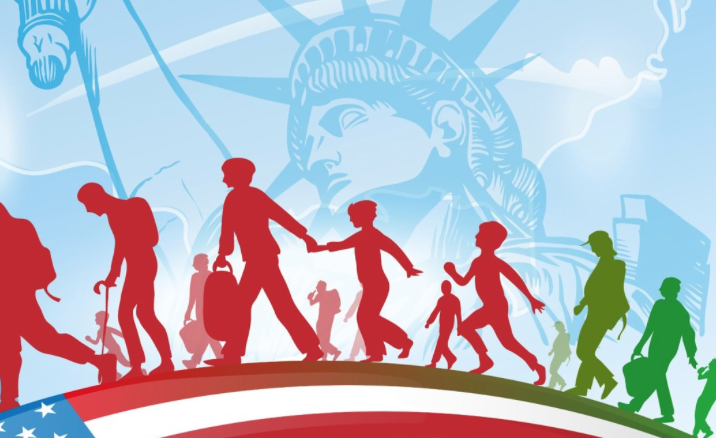What Does it Mean to Be First-Generation in America?
Being first-generation is an experience only some get – what’s it like?
Saying being first-generation in America is complicated; it is an understatement. Not only dealing with family matters like poverty, poor work, discrimination, and language barriers, but simply living can become the most challenging thing ever.
Being first-generation means your parents have emigrated from one country to another and you are the first to be born in the new country. This can be seen in several cultures and is an experience many have been through.
It’s not just a struggle though – being first-generation can be a beautiful thing. Whether it’s being the first graduate, going to school, or playing professional sports, you’re doing something that no one else has done in your family. It’s more something to be proud of rather than hide.
“I feel very proud of that label [First-generation] but there are many cons that come with it,” said Jastine Fernandez, an SAS freshman.

Being first-generation in your family means you can be the first to do many things, including finishing high school and go to college. You qualify for so many opportunities like scholarships. There are a plethora of scholarships that honor first-generation students or even bilingual ones can receive.
Ariel Reynoso explains, “I like being first-generation in my family. But growing up, I had a lot of pressure put onto me when it came to school and college due to the fact that I was born here and had more resources than what my family had. I would be the first person in my family to go to college, and being a first-generation in my family to go to college, and that means a lot to me.”
Many first-generation individuals experience this, as Ms. Gharabegi, an English teacher at North Hollywood High School elaborates, “Now that I’m older, I feel like being a first-generation American is definitely an asset and it’s a really big part of my identity, especially the job that I do right now as a teacher. I have this cultural wealth, this wealth of knowledge that I feel like I can really pull from to better aid and assist students who are also first-generation Americans or are just immigrants, because it’s something I’ve seen in my parents.”
Culture plays a big part in being a first-generation American. The difference in cultures and traditions can sometimes be hard to learn and teach. Carlos Rosales describes it as, “…the chance to be able to help my parents understand the world here and how it works. I get to experience things that they didn’t get the chance to have and I get to be the one to help them understand everything.”
Reynoso adds “My favorite part about being first-generation is introducing my family to American culture that they never got to experience back in Mexico. It is extraordinary to see my family see the differences and similarities between our culture and America.”
Culture can be complex as some may experience a “disconnection”, meaning that they no longer have or practice certain parts of their traditions. Whether it is because you surround yourself with people of different cultures or for family reasons, it can affect the population of first-generation children.

For some, it may be hard to connect with your culture because most of your family members may live in a different place where you can’t be taught your cultural traditions and practice them. For others, it may be more convenient if you have more family living near or with you because you are surrounded by people with experiences that they can teach you.
Ms. Gharabegi comments, “I do feel connected to my culture and I think a lot of it is because I actively seek that. It is really easy to kind of forget that part of your identity when you’re living in America because it is such a diverse population here, but I think you have to actively be aware of your culture and ways you can participate in the community which also identifies with that culture. But it’s absolutely important that you seek that out because it’s really easy to kind of forget that part of you if you don’t make that effort.”
When looking at religious culture, it may not be a big deal for some, but for others, it can be the bridge to connecting with that side of your family. Fernandez explains “I do feel connected with my culture, I would say that being religious is very engraved in our culture, so going to church and praying makes me very connected as well as just being around people who are Hispanic as well. Having my friends makes me very connected and we are able to bond over similar things and experiences.”
Differences in where we are from and who we are can be difficult to figure out. This is an experience many face and is something we can be proud of and not be ashamed of.
Your donation will support the student journalists of North Hollywood High School. Your contribution will allow us to purchase equipment and cover our annual website hosting costs.
Hey Huskies! I’m a senior in SAS and I’m so excited for my second year of journalism as graphic design editor. I can’t wait to share my creativity...

